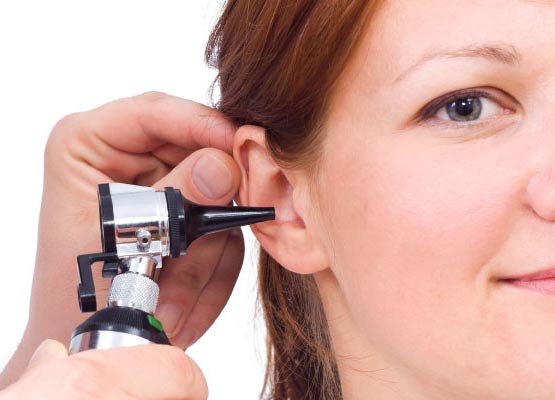Otolaryngology
WHAT ARE THE SEVEN AREAS OF EXPERTISE IN THE FIELD OF OTOLARYNGOLOGY?
Allergy: treatment by medication, immunotherapy (allergy shots) and/or avoidance of pollen, dust, mold, food, and other sensitivities that affect the ear, nose, and throat. Treating: hay fever, seasonal and perennial rhinitis, chronic sinusitis, laryngitis, sore throat, otitis media, dizziness
Facial Plastic and Reconstructive Surgery: cosmetic, functional, and reconstructive surgical treatment of abnormalities of the face and neck and ear. Treating: deviated septum, rhinoplasty (nose), face lift, cleft palate, drooping eyelids, hair loss and other ear deformities.
Head and Neck: cancerous and noncancerous tumors in the head and neck (nose/sinuses, mouth, throat, voice box and upper esophagus), including the thyroid and parathyroid. Treating: lump in the neck or thyroid, cancer of the voice box.
Laryngology: disorders of the throat, including voice and swallowing problems. Treating: sore throat, hoarseness, swallowing disorder, gastroesophageal reflux disease (GERD), infections and tumors.
Otology/Neurotology: diseases of the ear, including trauma (injury), infection, benign tumors, and nerve pathway disorders, which affect hearing and balance. Treating: ear infection; swimmer’s ear; hearing loss; ear, face, or neck pain; dizziness, ringing in the ears (tinnitus).
Pediatric Otolaryngology: diseases in children with special ENT problems including birth defects of the head and neck and developmental delays. Treating: ear infection (otitis media), tonsil and adenoid infection, airway problems, asthma and allergy/sinus disease, neck tumors.
Rhinology: disorders of the nose and sinuses. Treating: sinus disorder, nose bleed, stuffy nose, loss of smell, polyps, tumors.
WHY SHOULD I SEE AN OTOLARYNGOLOGIST?
These specialists differ from many physicians in that they are trained in both medicine and surgery. Otolaryngologists do not need to refer patients to other physicians when ear, nose, throat, or head/neck surgery is needed and, therefore, can offer the most appropriate care for each individual patient. Otolaryngologists are the most appropriate physicians to treat disorders of the ears, nose, throat, and related structures of the head and neck.


